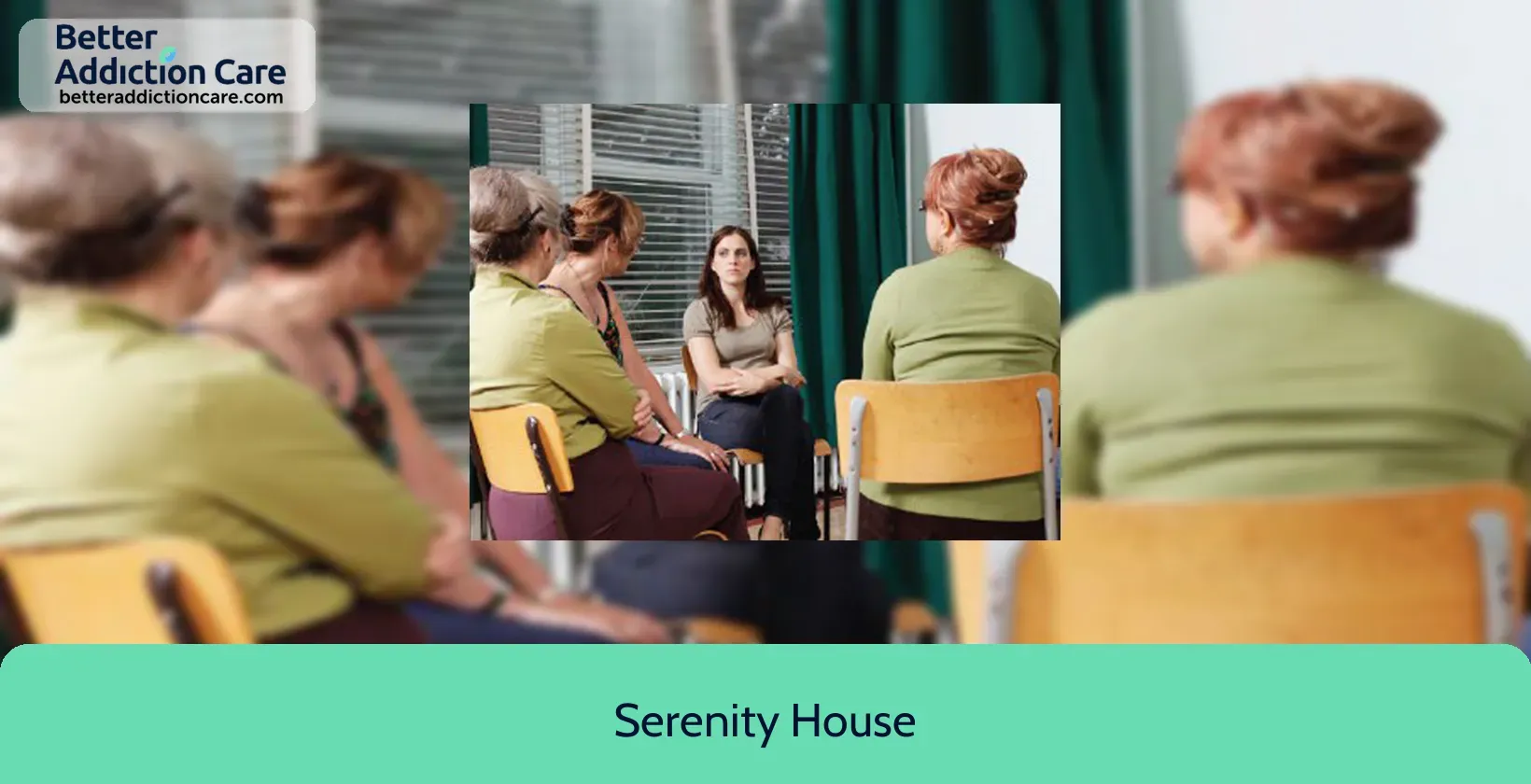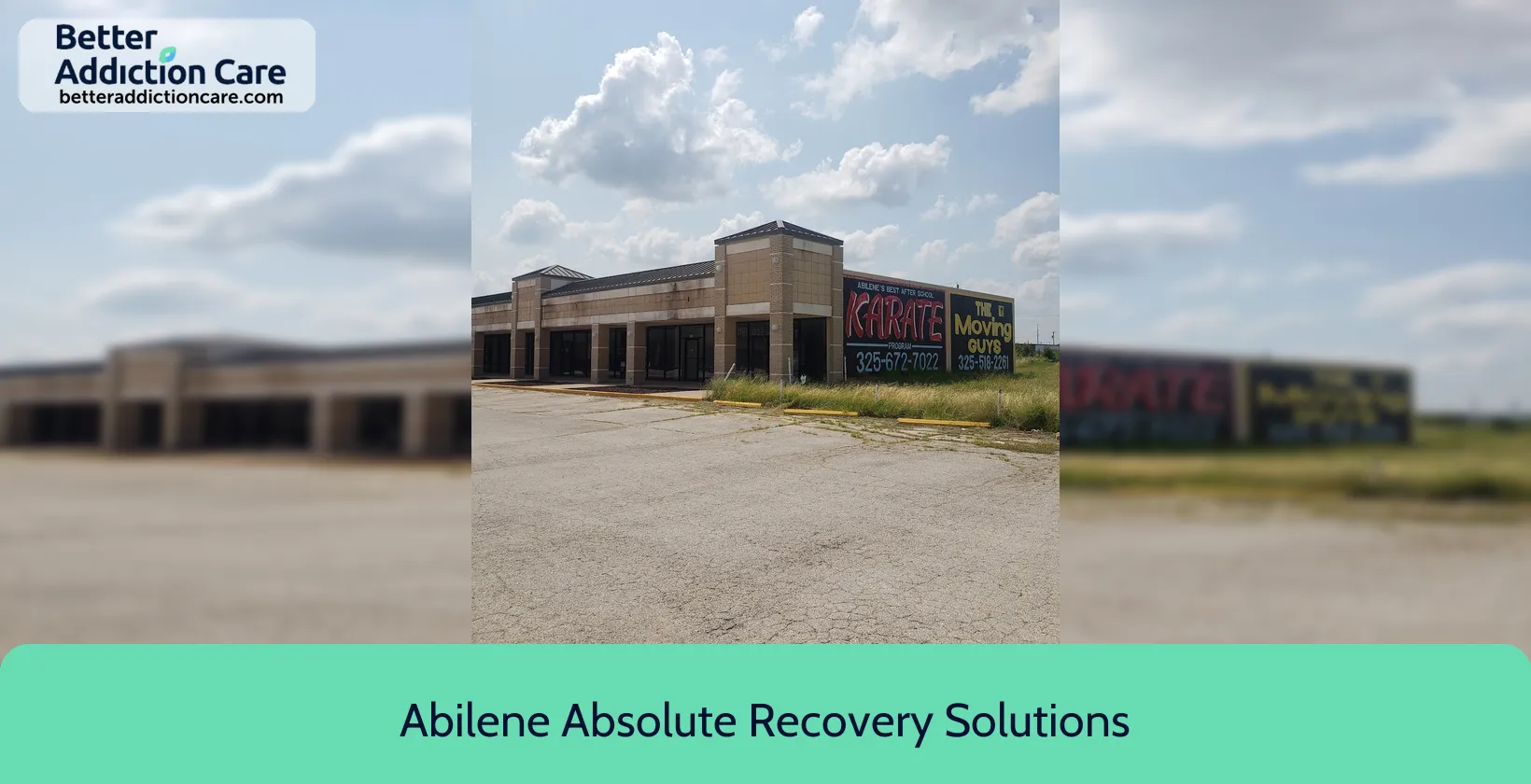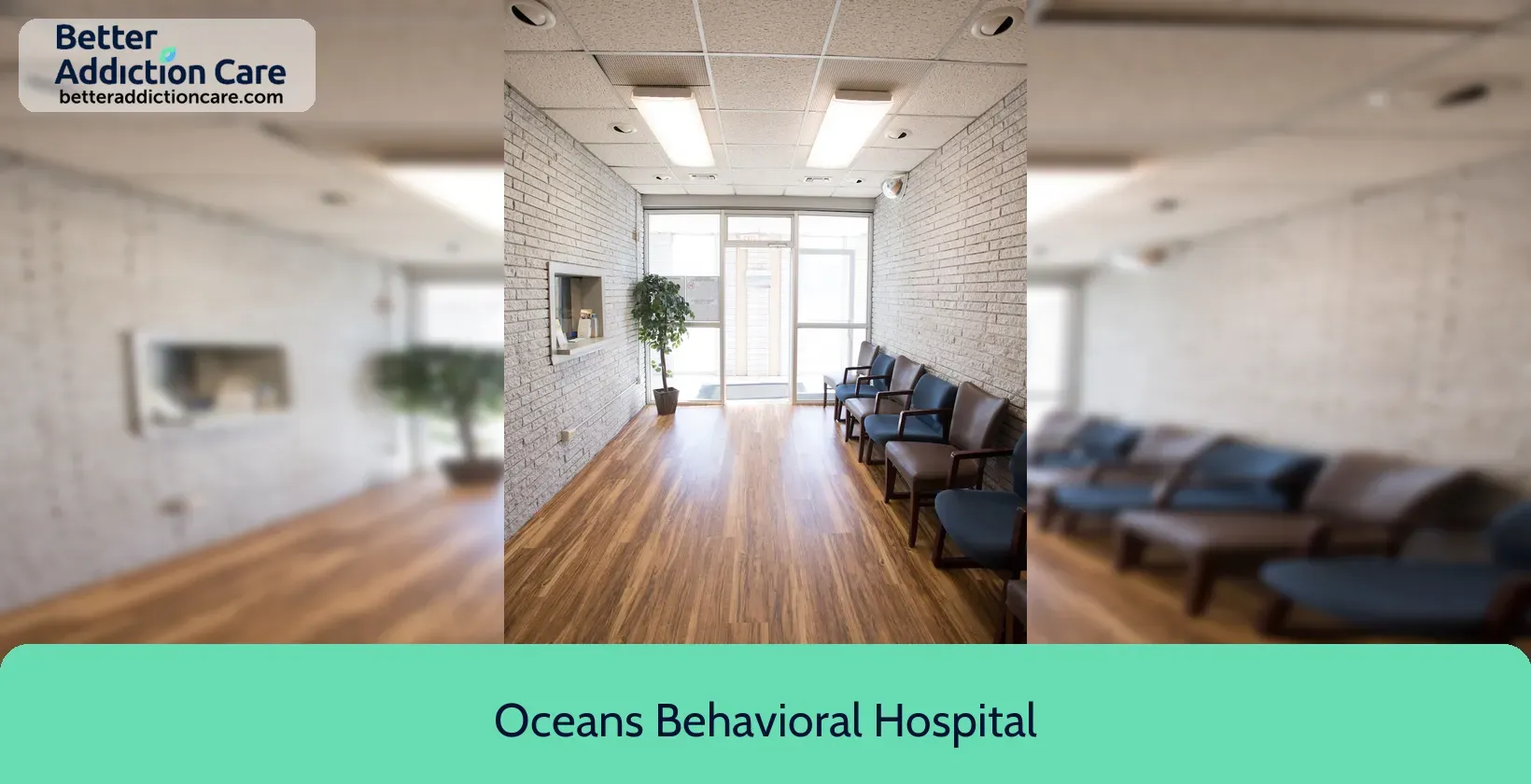ABODE Treatment

Overview
ABODE Treatment is an accredited substance abuse treatment center that provides inpatient and outpatient treatment for men from 18+ years of age. As part of their special programs, ABODE Treatment treats clients with co-occurring mental and substance use disorders, veterans, and active duty military. To help patients achieve sobriety, ABODE Treatment provides intake assessments. Afterward, patients receive cognitive behavioral therapy, substance use disorder counseling, and smoking/vaping/tobacco cessation counseling during treatment. ABODE Treatment is located in Abilene, Texas, providing treatment for people in Taylor County, accepting cash or self-payment, medicaid, and medicare.
ABODE Treatment at a Glance
Payment Options
- Cash or self-payment
- Medicaid
- Medicare
- Private health insurance
- Payment assistance (check with facility for details)
Assessments
- Comprehensive substance use assessment
- Screening for substance use
Age Groups
- Seniors or older adults
- Children/adolescents
- Seniors
Ancillary Services
- Case management service
- Early intervention for HIV
- Social skills development
Highlights About ABODE Treatment
6.80/10
With an overall rating of 6.80/10, this facility has following balanced range of services. Alcohol Rehabilitation: 8.00/10, Drug Rehab and Detox: 6.00/10, Insurance and Payments: 6.00/10, Treatment Options: 7.21/10.-
Alcohol Rehabilitation 8.00
-
Treatment Options 7.21
-
Drug Rehab and Detox 6.00
-
Insurance and Payments 6.00
Accreditations
State department of health:

State Licenses, issued by government agencies, authorize rehabilitation organizations to legally operate within designated geographical areas. The specific licenses required for operation are typically determined by both the nature of the rehabilitation program provided by the facility and its physical location.
Treatment At ABODE Treatment
Treatment Conditions
- Alcoholism
- Substance use treatment
Care Levels
- Hospital inpatient treatment
- Outpatient
- Short-term residential
- Long-term residential
- Intensive outpatient treatment
Treatment Modalities
- Cognitive behavioral therapy
- Substance use disorder counseling
- Smoking/vaping/tobacco cessation counseling
- Group counseling
- Family counseling
Ancillary Services
Languages
- Sign language services for the deaf and hard of hearing
Additional Services
- Pharmacotherapies administered during treatment
- Mentoring/peer support
- Breathalyzer or blood alcohol testing
Special Programs
- Clients with co-occurring mental and substance use disorders
- Veterans
- Active duty military
- Criminal justice (other than DUI/DWI)/Forensic clients
- Clients with HIV or AIDS
Get Help Now
Common Questions About ABODE Treatment
Contact Information
Other Facilities in Abilene

7.51

6.97

6.82

6.99

6.88
DISCLAIMER: The facility name, logo and brand are the property and registered trademarks of Oceans Behavioral Hospital, and are being used for identification and informational purposes only. Use of these names, logos and brands shall not imply endorsement. BetterAddictionCare.com is not affiliated with or sponsored by Oceans Behavioral Hospital.
